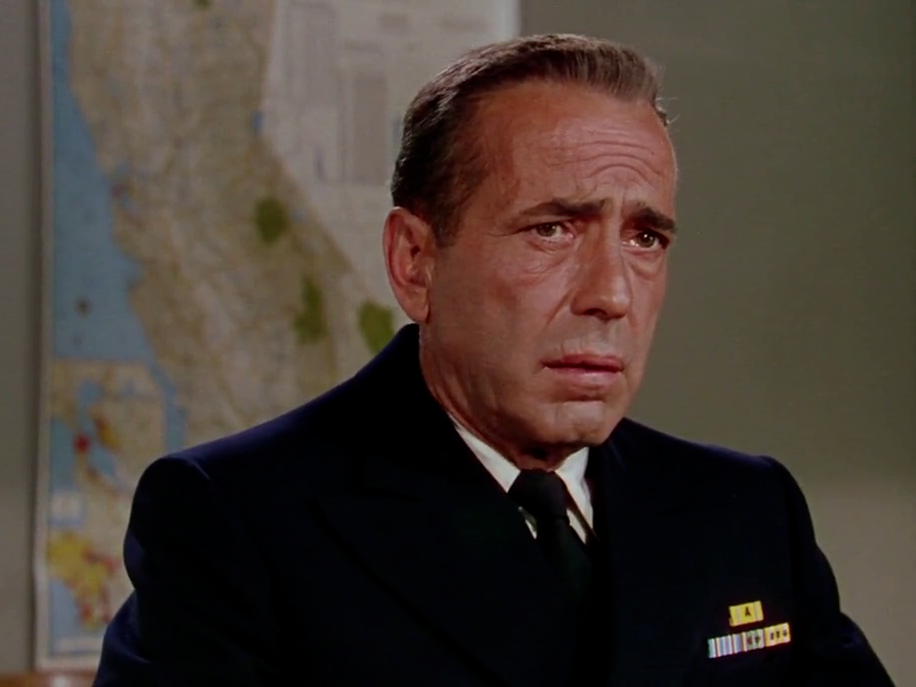|
The first officer of a U.S. Naval vessel relieves his captain of
command after the captain shows signs of severe mental instability. DRAMA/WAR
|
The Caine Mutiny (1954)Directed by Edward Dmytryk
Written by Stanley Roberts Starring Humphrey Bogart, José Ferrer, Van Johnson, Fred MacMurray, Robert Francis, May Wynn, Tom Tully, E.G. Marshall, Arthur Franz, Lee Marvin, Claude Akins Based on the novel by Herman Wouk Oscar Nominations - Best Picture, Best Actor (Humphrey Bogart), Best Supporting Actor (Tom Tully), Best Adapted Screenplay, Best Sound, Best Film Editing, Best Original Score (Max Steiner) |
The Caine Mutiny contains one of Humphrey Bogart's last great roles before his death from esophageal cancer in 1957. It's a role that can be viewed as villainous, or simply one of a broken man. Regardless of where you stand, Bogart's performance is fantastic, and he leads a solid cast of 50's character actors in a film that showcases how truly difficult it is to do the right thing, especially when everyone else thinks you're wrong. While not based in fact, the story of The Caine Mutiny feels like it happens fairly often, but nobody ever speaks up for fear of being ostracized by their peers. And I don't just mean in the military.
The crew of the U.S.S. Caine learns that their longtime captain is being replaced. The new guy is Lt. Cmdr. Queeg (Bogart), and he is a paranoid hardass who may or may not be mentally ill and unfit for duty. The first officer, Lt. Maryk (Johnson) stands up for Queeg at first, but after suffering ridiculous orders and continued incompetence at Queeg's hands, Maryk comes to the conclusion that Queeg is sick. During a typhoon that nearly capsizes the ship, Maryk relieves Queeg of duty to save the crew, and is later court martialed for it. Now, the film turns from a war movie to a courtroom drama, with E.G. Marshall playing the hard-nosed prosecutor. It's a riveting film with a host of great performances. The Caine Mutiny is not a glamorous 50's favorite like All About Eve or The Ten Commandments. I had never heard of it before we decided to do On the Waterfront on the Oscar Sunday podcast. Knowing Bogart's diagnosis, this film becomes very poignant. It's unclear whether or not he knew he was dying when he made it, but the film now takes on an air of remembrance. It's a great war film and a fantastic courtroom drama that features a lot of moral gray area and makes you question what side you're on. |
